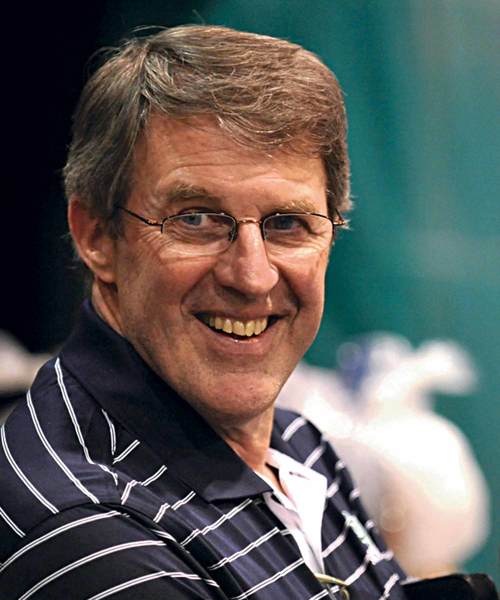Coaching is Being “Good Tired”
A few days ago, I received I received a small book of poems from a friend: If God Invented Baseball by E. Ethelbert Miller. “Oh Good,” I thought, “Just in time for Spring Training.” What a surprise when I looked inside. These short poems do, indeed, begin as meditations about baseball, but they quickly, and sometimes with only one line, become meditations about life.
For me, these poems also include brief meditations about coaching. Take this one, for example, on page 5, called “Playing Until Dark:”
When we could no longer see
the ball we walked home sadly
dragging our bats and sometimes
wearing our gloves on our heads.
Exhausted but happy.
The light in our eyes
even stars could see.
We did that when we were young, didn’t we? It didn’t have to be baseball either. It could even have been swimming, right? Whatever we were doing, we did it with our whole heart and soul until it was too dark, or it was time to go home. And home we went, “exhausted but happy,” a little sad, perhaps, that we were done for the day...but still, there was that “light in our eyes” that “even stars could see.” We were tired, but we were “good tired.”
We relate to that scene now because coaching is like that. Coaching is being both “exhausted” and “happy.” Coaching is being “Good Tired.” Especially at this time of year, when we have been doing doubles, and weights, and dryland, and having Meets home and away for months, not to mention recruiting, we are always at least a little bit tired. But it is a “good tired,” In the words of the poem, coaches at their best head home each day “exhausted but happy” because they spent their day helping young people become better athletes, better students, and better human beings. The “light in our eyes [that] even stars could see” comes from knowing that the students on our teams are good people, and that the mission of our lives is to help and to serve them. We do that through our sport, which is our teaching tool and their lab manual.
There is always more to be done, of course. Coaches always think their teams and their athletes can improve. So there is always more that we can do. But, as coaches, we know and live a simple truth that guides and shapes our lives. It is this: Coaching is Leadership; Leadership is Serving; and Serving takes everything we’ve got – often, especially in-season, leaving us “exhausted but happy.” We are tired, but it is a “good tired.” Coaching is being “good tired.”
Coaches know one other thing too: this feeling of being “good tired,” of being “exhausted but happy” is worth it. It is why we keep doing what we are do.
College teams, like colleges themselves, have seasons, just like baseball. E. Etherbert Miller puts it this way on page 57 in his poem “Seasons:”
Spring Training again
Young players replace the old
The game is too short
Coaching is like that, and all college and high school coaches know it. As we approach one Championship Season, we know that this current season is ending. We also know that it will not be long until next season begins. The freshmen come in; the seniors are gone. We start over again, marveling at how fast a collegiate career goes by. Maybe, the game of life is too short too? Miller’s poem allows us to wonder. We at least hope the seniors learned something while they were here. We hope they learned about teamwork and how to be good teammates, and good team players, and good people.. “Bunting and The Art of Non-Violence” is how E. Ethelbert Miller”a describes it, on page 12:
All your life you played small ball.
In elementary school you held the door
open for your teacher. This taught you
the art of bunting and kind manners.
You sacrificed being first so someone
could reach second. Once returning to
the dugout Gandhi slapped your butt
and said “good job.”
Coaching is like that too. The game is always more than the X’s and O’s it is played with.
There is always teamwork, and team bonding, and team spirit, and team identity, and the indescribable whatever-it-is that turns good teams into great ones. It’s the same magic that allows a relay team to become more than the sum of its parts. We’ve all seen it happen. A relay team comes together when everyone on the team, even those who wanted to be on the relay but aren’t, pours their heart and soul and energy into the four teammates who are on the relay...and then the magic happens. The relay out performs itself and does something special. They finish the relay “exhausted but happy,” and everyone, starting with their coaches, has “a light in [their] eyes” that “even stars could see.”
Can you coach this stuff? Yes, No, Maybe. All coaches try. And there are steps, predictable steps even (the same ones that Kathie Wickstrand Gahen teaches us in her Convention talks), but there is no specific formula that works for every team, or for every coach, or in every year. The only thing that has a chance of working is the love, and commitment, and energy, and self-sacrifice of the coach with each member of the team, and then out through each member of the team to all the other members of the team. And because this year’s team is different than last year’s team (even if only by one person), the process starts over again each season. It always starts with love, and with calling on the goodness of each team member to bring out the goodness in each of the other team members so that together their work and their love for one another will create a great team. It takes work to do this, and the work must always be genuine, and must always come from the heart.
Coaching is caring; coaching is listening; coaching is paying attention; coaching is communicating; coaching is teaching; coaching is leading; coaching is serving... Coaching is exhausting but happy work. Coaching is being “good tired.” Coaching is having a “light in [your] eyes [that] even stars could see.”
So what would happen if God had invented baseball? E. Etherbert Miller explains it this way (page 2):
he would not rest on the seventh day.
Instead he would turn to us and say
“let’s play two.” He would let us bat
first while his angels danced
in the outfield
And my guess is that there would be a “light” in his eyes and ours that “even stars could see.”.

